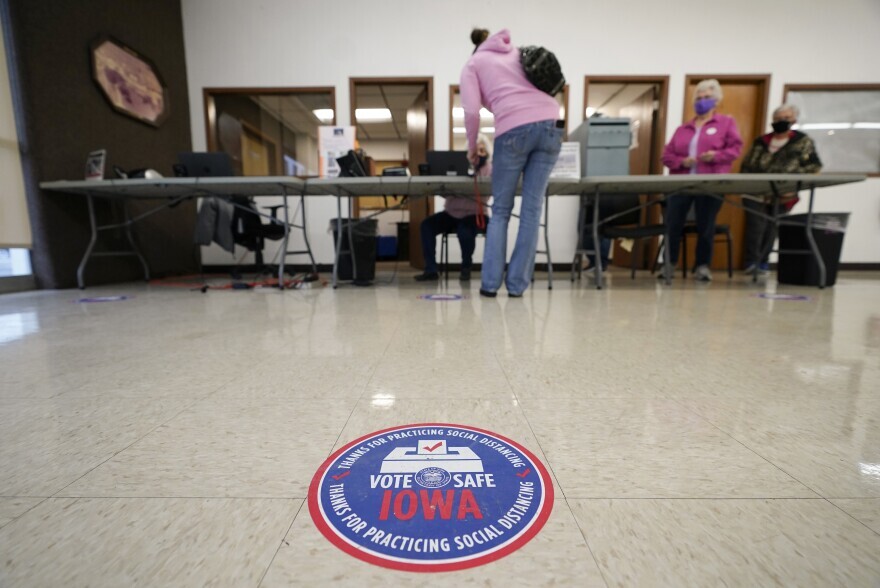Iowa is among the top states Latino leaders across the U.S. said they're concerned about. They analyzed voting access issues at the national League of United Latin American Citizens (LULAC) Voting Rights Townhall.
The panelists said recent changes to Iowa’s voting laws—like reducing the number of days to request and return an absentee ballot—could limit Latino voter participation in the midterm and 2024 elections.
National LULAC President Domingo Garcia launched the townhall discussion Monday by listing states that LULAC has labeled as ones that "engage in voter suppression:" Texas, Iowa, Florida and Georgia are on the top of the list.
“What we’ve seen are politicians weaponizing the legal system to bring back sort of Jim Crow. And this time it’s José Crow. They’re also going after Latino voters and Latino voters across the country.”
Luis Fraga, the director of the Institute for Latino Research at the University of Notre Dame, reminded attendees Iowa isn’t alone in making it harder to vote, and such attempts are most likely linked to U.S. Census results. Many states' white populations did not see growth, while in states like Iowa, Latino populations grew. Iowa's grew by almost two percentage points in the past decade.
“The re-emergence, or perhaps better stated, the continuing practice in the United States of limiting voting, especially to communities of color when their numbers rise," he said.
"Latinos are maybe only 7 percent of the vote in Iowa, but that can make the difference," Garcia added.
Most panelists said Latinos' right to vote is in peril with recent legislation passed and current legislation moving through state governments. Former presidential candidate Julián Castro said voting access for people of color in the U.S. is under "full blown attack," and state LULAC chapters and other advocacy organizations must be on the offense to ensure all those who are able to, vote.
National LULAC has filed a lawsuit challenging the state’s change of voting laws and it states the changes to the law make it more difficult for people with multiple jobs or unflexible jobs to vote. Especially since the voting schedule was reduced by an hour.
Gov. Kim Reynolds has said the laws promote transparency in voting parameters.
The Iowa LULAC chapter has also filed a petition to challenge the state's so-called 'English-Only' law that requires official documents, including voter materials, to be in English. They argue this, too, limits Latino voter participation.




